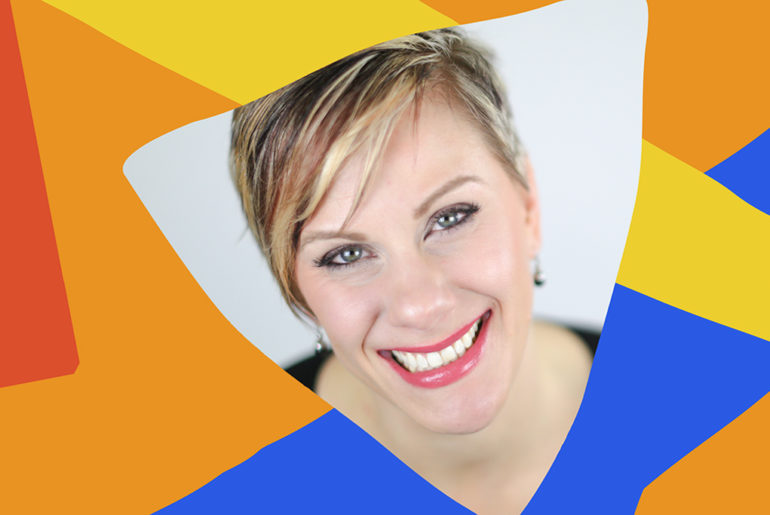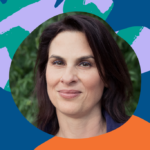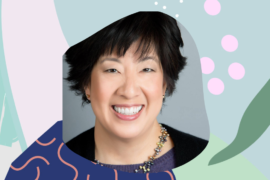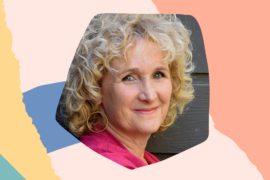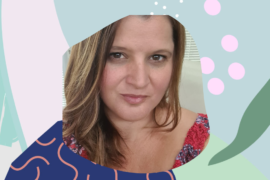Key Takeaways
- Why entrepreneurship excited Alissa so much after ten years of work as an employee in a very conventionally structured environment.
- How Alissa transitioned her business from a one-on-one coaching model to a membership site — and how TRIBE helped her achieve scale.
- Alissa’s fears and concerns as she launched her membership site — and how she got over them.
- How getting only 16 subscribers at first was a blessing in disguise that allowed Alissa to build a super solid foundation to grow from.
Free Give
 FREE Guide – Launch & Grow a Profitable Membership Site
FREE Guide – Launch & Grow a Profitable Membership Site
Ready to reclaim your time and attract more monthly paying customers? Our step-by-step guide will show you how to build a membership site that turns your passion into recurring profit. Click here to download!
Memorable Quote
Embrace every step of the journey instead of just the end result.“ – Alissa Daire Nelson
Every great success starts with the first step.” – Shelli Varela
Episode Resources
Alissa Daire Nelson – Daire Success Coaching Daire Success Coaching (Facebook)Transcript
Read The Transcript
Shelli: Alissa Daire Nelson, welcome to It’s A TRIBE Thing. How are you, my friend?
Alissa: Hey, I’m great. How are you?
Shelli: I’m awesome. Thanks so much for taking the time and for sharing your awesome stories. So, you and I had the opportunity to work together and I got here, at the back end of your story as it was happening real time. So, I’m super excited to be able to share you with the entire world and also with our amazing TRIBErs. So, I’m wondering if you could start by telling us a little bit of your backstory. So, your company is called Daire Success Coaching and how did you originally start and decide that that was the thing you wanted to do and that that’s what is going to be your flag in the ground in terms of your life’s work and your purpose and let us know sort of how that progressed for you from the beginning.
Alissa: Yeah. So, interesting because I had 10 years of experience in the health industry. I was first a registered dietitian and then I was a registered nurse and now I’m a business coach. What? How did that happen, right? And so, just the 30-second overview as I ended up going through divorce and got really scared because here in Minnesota all the nurses are unionized, and I was terrified that I was not going to be able to be able to put a roof over my kids’ head. And so, I started a direct sales company, or I didn’t start a direct sales company, as a consultant in a direct sales company and very quickly realized that I didn’t want to run a hobby. I wanted to run a business and so if I was going to do that, I had to learn how to do that. And so, I started going to every conference and every workshop and started hiring coaches and it was a couple of years into that whole thing where I had this epiphany with I was talking with a friend one day. He said, “Gosh, can you help all the people that you want to help in the business you’re currently in?” And it was like someone stabbed me and froze me and like all at once, I couldn’t breathe, and I could not answer that question, yes. And so, in that moment, I was done with that direct sales company and I was like, “I have to go into coaching.” After all of the value that I got from my personal coaches, I just knew that I need to put my agenda completely off the table because in direct sales you have to recruit people and I just didn’t want to do that. I wanted to engage them not into my dream, but into their own.
Shelli: Can I just jump in with a quick question because I’m sure like this will be on the minds of a lot of people who are listening. So, you went from a job where it’s conventional and it’s structured and you’re an employee. What was it about that because like nursing is a pretty secure job? You go to school for a long time and you think within the parameters of science. What was it about entrepreneurialism and, in particular, success coaching for you that you were able to step out of something that was so unconventional in terms of an occupation or a career into something that was so much more free-flowing and allowed you creative license but also had to be a significant transition-free to step off of that ledge of something that was secure to something that you’re like, “You know what, I’m just going to give this a whirl.”
Alissa: Yeah. Thank you for asking that. So, in nursing especially when you’re a union nurse, you get paid based on the number of hours you put in, period. And so, there was no way that I could get paid more for doing an outstanding job and most of the nurses that I worked with were great and there were nurses that had put 10 years more in than I had and were barely doing a good enough job, terrible bedside manner, past meds, and that was about it like they did the bare minimum. I’m looking I’m going, “You make at least $10,000 a year more than I do. This is not right,” right? And what I loved about entrepreneurship is, you know what, I can go as far as I want to go.
Shelli: Based on your vision and your excellence and your skills your life’s experience. That’s amazing.
Alissa: Yeah. And so, I love that. I did not know at the time just how scary the flipside of that is, which is like if you halt, you know, that that success doesn’t always keep going for you, right, unlike a salary position or something that keeps paying you even if you have a bad month and so the ups and the downs I didn’t fully know and I’m glad I didn’t fully know at that time because I think I would’ve been much more cautious going into it but that little squiggly line of success that you sometimes see in means and such of entrepreneurship is so true.
Shelli: But don’t you also agree that like with that squiggly line and with the ups and downs like someone recently said to me they were talking about how in life, there’s the ups and then there’s the downs and then there’s the ups and then there’s the downs, and everybody is sort of striving for that like constant level of success at the top of the peaks. But what someone said to me that was really interesting is if you look at a heartbeat on a monitor, you’ll see the up and then the down, and the blip, and then the up and the down and the blip. And if you liken that to the entrepreneurial journey, that is life like that heartbeat, that up and down and the blip is life. Subsequently, that straight line even if it’s at the top is likened to a flat line. And so, it’s kind of like the lifeblood and the juice and the creativity that you get to have and also even in those blips, you get to learn something that’s amazing that ends up being your gift to give.
Alissa: Yeah. And I think especially in those down spots, knowing that there is an up is the thing that I’m so glad for this and I’m so grateful for this moment right now because I get to emerge from this. And when you’re at the top, you can celebrate, and you can inspire others, and bring other people up. And sometimes and I’m a testament to this right now is like even when you’re going through a tough time, you can be an inspiration even in the midst of your mess, and by being courageous enough to be in the mess. And that I think is a new level of aha for me and I’m just really excited to go through it. Again, grateful for that low or that low point because I know I get to emerge from it and guess what, I could take other people with me.
Shelli: That’s incredible. So, let’s go back to the point in the story where you decided you’re leaving your MLM business and then you’re going into coaching. What did that look like for you in terms of the challenges you faced in and what sort of business model going forward were you looking to create in the beginning? Because I know that you started with one-on-one coaching and we’re going to get into how you turned that into a membership site and how that transpired because that is juicy stuff right there.
Alissa: That is the juicy stuff.
Shelli: Yeah. But if you can share with us sort of how that transpired for you.
Alissa: Well, I knew I wanted to start with one-on-one coaching because I think you get the best experience from that. You diving in, you can veer to the left and veer to the right with your client as you develop that sort of program that becomes your staple program. And so, that’s why that was so vital for me. And so, I did that for about three years and I wanted to do something more to scale the business and I think that’s all of our dreams is to scale the business to something that gives us total freedom and all of the stuff that you see online. But I knew that I needed to put in the work to do the one-on-one coaching and so I did. I networked, went to three or four networking meetings a week. I practiced my pitch. I practiced who it is that I wanted to niche down to. I didn’t know at that time. I just knew I wanted to help others really step into their dreams and I had some strategic skill and some other things in sight, and some magic to bring to that, but I didn’t know and you can’t know until you do it. I did also go and get a coaching certification during that time and that has been very helpful credibility-wise and skill-wise to be able to step into that. And then you just know when it’s time to go. You know what, I’m solid with what I provide and I want to provide this to more than one person at a time.
Shelli: Perfect. And that must’ve been – so going from that nurse who was on that solid platform and you had something that was pretty much bombproof because you know in that particular profession the more volatile the economy gets, the more stable your job is because sickness and health is a constant for people. So, when you stepped off to coaching, you’re cutting your teeth and you’re learning your skills and you’re trying like niche down but also drill down on what it is in your special secret sauce and your magic that you are able to provide. So, what was it then that allowed you to envision what that could look like on a one-to-many scale?
Alissa: I then by that point had gotten into many group coaching programs myself and so I was like maybe it’s like this me that’s like that. So, I want to experience that on the client-side first and then I was able to kind of create that vision, and I came across Stu and TRIBE and I was like, “This is it. This is model,” like I got hair raised on the back of my neck like, “This is it. I must get in.” And it’s funny because I’ve heard Stu talk about people emailing me like, “Would you open the cart already?” I was one of those people like I was like as soon as the cart was open, I’m like I’m in.
Shelli: So, just to cut to for those listeners, many of the listeners will be TRIBErs and will be from Stu’s course called TRIBE but just for those who have not yet heard of Stu and of TRIBE, so Stu is one of the best in the world at creating high-profit, low-stress membership sites. Not only creating them but teaching other people how to use their skills and their knowledge and their expertise and their love of a certain topic to be able to create that same business model for themselves. So, you took Stu’s TRIBE course.
Alissa: Yeah. And I was like, “All right. Now, I actually have to step out and do this,” which is a whole different thing than learning it.
Shelli: Absolutely.
Alissa: And so, I did a whole messy launch and I had somebody else build the membership site that was important because all along the way I was like, “I can do this. I know I can do it. I can DIY this.” No, I couldn’t. So, I did have someone build it for me which was a huge weight off my shoulders and I was like, “I don’t really know what I’m doing but I’m just going to do it and I’m going to open it up to my current community and see who bites,” and I had hoped for a bigger launch but I also knew I just need to get through this first one and then let’s see what happens from there.
Shelli: So, let me ask you this. When you first decided, “Okay. I’m going to jump off this cliff. I’m to start a membership site,” what were you feeling? Like what were your fears or your concerns and how did you work through them? Because I mean, we’ll get to the rest of your story but ultimately, you did move past that so I’m curious to know what they were and how you as not only a success coach but as somebody who’s stepping into something that’s new and unfamiliar and unknown, how you reconcile that for yourself.
Alissa: Yeah. Well, my biggest fear was that no one would join and then I’d be sitting there inside my membership with crickets and like all by myself and then what? And there’s I had to kind of work through, well, what if that happens? And I kind of came back around to it like, “You know what, that might happen and it’s okay.” If there’s three people in my membership, I can serve those three with my whole heart and work out some of the kinks and the routine of things and the deliverables and, etcetera, to figure out my own way around and navigate my own membership site. And so, I had to be okay with a low number but then also shoot for that high number at the same time and being okay with the win is that I did the launch, not that I reached X number of members. That will come and that’s okay, but as soon as I had that shift and one of the things that Stu says is, “Look, you need to know your people. You need to love your people. You need to celebrate your people,” and I am telling you that that mantra got me through because it was like, then it didn’t matter if it was three people or 300 right out of the gate, because ultimately, I knew I could get to know my people, I could love my people, and I could celebrate them.
Shelli: Well, it’s so funny you say that too because, I mean, with a membership site it’s a one-to-many model and it’s amazing because you can serve them at a price point that is palatable, and you can stay in your lane with respect to, “Okay. My gift is this certain area of expertise.” So, instead of having to do a big launch or you can stay in the course creation and stay in your own lane. But it’s also important to remember that much like your one-to-one coaching to say I have 100 or 300 or 5,000 people in my membership, they’re actually human beings. So, to your point, especially for those who are considering, “Okay, like I’m going to step off the ledge and I’m going to do this,” if you’re helping one person, it’s the same as like doing coaching. If you’re helping three people, like to your point, if you were to only have gotten three people in your membership, those are three human beings that you get to love on and serve and celebrate like you said, but the transformation and the ripple effect of what they get to accomplish in the world as a result of having your attention and your time is immeasurable.
Alissa: Exactly. Exactly. And so, I went through the launch and I did it totally messy. You know, I had the template. Stu, in TRIBE, he gives us a template, and did I follow it? No, I didn’t follow anything which is sort of funny and I will do it differently in my next launch. But ended up with 16 members.
Shelli: Wow. Yay!
Alissa: And at that number, it’s not yet financially viable for me to do it as my sole or primary a stream of income. So, I have to continue to do other things which is okay, and initially, I was really disappointed because as I’d hoped for at least 100 and so I was just sad. And for me, I had to be okay with being sad about it.
Shelli: What was the unexpected gift though of starting with 16 people? Because I feel like not all gifts come wrapped in a bow. You’ve heard me say that a thousand times, but what was the unexpected gift of not getting 100 but getting 16 instead?
Alissa: I can really continue with that one-on-one to a large degree with the 16 and we are building the foundation of this amazing tight-knit community. And so, we’ve got a Facebook group that goes along with the membership and that kind of thing and they’re stepping in and they’re coming by each other’s sides and I don’t think that that can happen right out of the gate if you’ve got 500 people in there. There’s just not that intimacy. And so, these 16, they are my rock foundation of membership and I know them very individually, very personally, and one of the other things that it allowed me to do and this is actually something that I’m going to continue to do no matter how many members I do end up inviting into the membership is I was able to write to my hand a written thank you card and call every single member and say, “Hey, I want to welcome you and I would love to have a little bit of information like why did you join and what would make this a community that you never want to leave?”
Shelli: That’s a solid question.
Alissa: And it was they were amazing phone calls and some of them were over an hour.
Shelli: Wow.
Alissa: And if I had 100 people, I wouldn’t have been able to dive as deep in and give them that personal one-on-one. Now, I’m going to continue to make those phone calls, but I’m going to have to cut them shorter to 15 minutes or so in order to call all 16 new members or what have you.
Shelli: So, what do you think the difference will be now that you are building this super solid foundation because you get a chance to sit on the phone live with another human being and say, “How can I serve you? What do you need?” Like, there must’ve been some things that you uncovered that will, as your membership grows, allow you to start as you intend to continue in terms of what people need. Because now you’re able to look under those rocks and see all of those patterns and hear firsthand like, “Here’s where I’m actually stuck.” And like we had spoken as we were working on your story, it’s like oftentimes when you’re dealing with somebody, the thing that’s holding them back is the fear beneath the fear. It’s not the thing they think they’re afraid of, or that they feel like it’s being stuck, but if you were to have a smaller launch and you have the gift and the opportunity to actually sit down and speak with these people that you want to serve and love on and you want to create transformation for, it’s really important, and an incredible gift to be able to really get vulnerable with them and say like, “What is it that’s holding you back, and how can I help you?” Because once you hack into that and figure that out, the way your membership grows going forward will be ultimately different and ultimately more valuable to the people that you get to serve.
Alissa: Yeah, it’s interesting because the whole membership is the foundational pieces of backend part of your business for helpers and healers. And so, I was like, “Great. I’m going to give you templates and I’m going to give you master classes and I’m going to give you research and I’m going to give you live Q&As,” and I was so excited about that part and on nearly every single one of those phone calls people told me, “I want the community. I just want to know I’m not alone.” And so, those things. my deliverables are valuable, but they joined because of the community. And so, it has shifted how I’m going to relaunch and the conversations that I’m having with people now I’m looking for, “Are you feeling alone? Because I can help with that.”
Shelli: Well, do you feel though that it also helps with your marketing messaging for the next launch. So, you got some information of something that is going to help you get to that 100, 200, 500-person launch based on information that you now know and have that you wouldn’t have had had you not had the opportunity to have a smaller launch, hear what they needed to say, and ultimately give them what they needed, not what you thought they needed.
Alissa: Yes, exactly. That is exactly as I’m able to really shift the messaging and I was going to relaunch again like I was going to go right back into it next month and start some Facebook ads and do some stuff like I got to get this thing financially viable. And I made the mistake of going, “I need more numbers.” So, I had that 15. I was disappointed but grateful that I could have these one-on-one conversations but then I’m like, “I got to get more, I got to get more.” And I ended up talking to a really close friend of mine and she’s like, “What if you didn’t?” and I was like, “What are talking about? I have to. I have to get this thing more members, more members.” She’s like, “But what if you just didn’t? What if you just serve the people that were in there?” And it hit me like a 2×4 right in the face and I was like, “You know what, you’re right like I got to get out of marketing mode and into service mode.” And so, I chose to not relaunch and to continue to do the other things that are driving revenue in my business in order to just really dive in and serve, serve, serve, and that was a great decision. And so, I will relaunch probably around the first year or something like that, but we’ll see when the time is right and I’m going to feel into that instead of let the numbers drive because each of those numbers are real humans. And for a moment, because I had set my sight so high I lost, thankfully, it was only momentary sight of it but I lost sight of each one of those members as a human. Just go serve.
Shelli: Well, it’s interesting because it also can point to and inform the type of membership site you have. So, you mentioned a couple of times that being financially viable and if what they’re looking for is community and a deeper dive, I mean, what you may learn and what you may decide to do if you were to choose to go in this direction is have a higher price point and a lower number that you can go deeper with so you can get your needs met, they can get their needs met and everybody wins.
Alissa: Yeah. So, it might go that way, and I’ve already kind of pre-scripted in my head what does this look like when we have a thousand members? What does this look like we have 10,000 members? How do we continue to have intimacy and openness where people feel like they can share their true challenges and to build that community? How we do that in a functional way that doesn’t make people feel like they’re lost in the sea of numbers? And I’m excited to build those things out as the numbers do get larger and I know they will. One of the things that I’ve come back to and if you’re listening to this and you think I either have launched your membership or you’re considering it and you have the same fears like what if I only get a few? Tony Robbins only had three people in the room his first time he ever spoke. Three. Three. And so, it’s like you just keep going and this has been the theme of my life and, Shelli, you pulled this story out of me when I didn’t think it was that big of a deal but when I was four years old, I snuck out of my house and walked to preschool when my mom’s car broke down and at that time and it was 2.5 miles across busy roads and everything else, as a four-year-old. And the new look that I had on that whole story is like I just took one step after another and that’s what this is all about. You figure out where you want to go and you just keep taking one foot after another foot, after another foot and it’s all part of the journey and embracing every step of the journey instead of just the end result.
Shelli: Well, it’s important too to not compare your chapter 1 to somebody else’s chapter 20 because that’s not where they started either but the ability to be able to envision what you want it to look like, acknowledge whatever’s bubbling up for you emotionally, find a workaround like figure out what is the fear beneath the fear. What is it I’m actually afraid of? Because it’s really not what’s on the surface because that’s easy to dismiss or avoid, but it’s actually like how can I work around how I’m feeling so that I can actually put one foot in front of the next? Because every great success as we know starts with that first step. So, I want to applaud you and commend you for taking the first step. I’m excited to see where you take this, and your community is so lucky to have somebody like you leading the way, lighting the torch, and showing them how to take one step after the next. So, thank you so much for your gift and for sharing and for coming out and hanging out with us on the It’s A TRIBE Thing podcast.
Alissa: It has been a pleasure. Thank you for having me.
